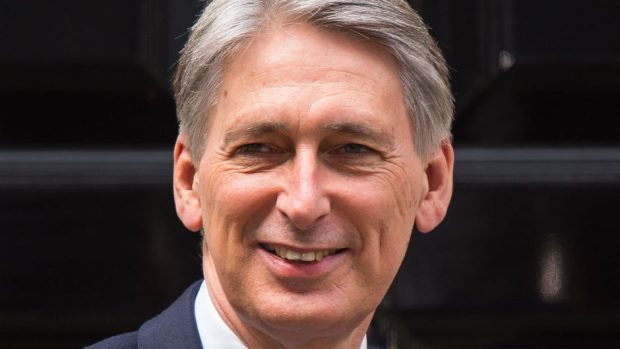The UK Government today pledged to protect farmers’ incomes amid the uncertainty prompted by the UK’s vote to leave the EU.
Chancellor Philip Hammond said the Treasury would match EU direct subsidy payments after Brexit – up to 2020.
His announcement was part of a wider commitment to honour EU funding beyond the date the UK leaves.
The current level of basic Common Agricultural Policy (CAP) funding (pillar 1) will be met for the next four years as part of the transition to new domestic arrangements.
It means that – with the government covering the shortfall when Brexit actually happens – farmers will not lose out.
They are expected to welcome the move, having campaigned for such certainty since the June referendum.
Setting out its priorities last month, NFU Scotland put at the top of its list the need for the next four rounds of payments expected as part of the current CAP deal – which ends in 2020 – to be delivered as planned.
It argued this would provide an “anchor of stability in uncertain times and ensure there is a confident platform on which to negotiate future trading and domestic support arrangements”.
The farming community’s focus will now likely shift to seeking urgent clarification from the government on what form it believes these should take post-2020.
Mr Hammond also set out assurances that all structural and investment fund projects, including agri-environment schemes, signed before the forthcoming Autumn Statement would be fully funded, even when they continue beyond the UK’s departure from the EU.
The government confirmed this included CAP funding to promote rural development (pillar 2).
Additionally, the Treasury will also put in place arrangements for assessing whether to guarantee funding for specific projects that could be signed after the statement, but while the UK remains an EU member.
And where organisations bid directly to the European Commission for funding on a competitive basis, for example universities participating in Horizon 2020, the government will underwrite the payments of such awards – again while the UK is still an EU member.
The money will be honoured even when specific projects continue beyond the UK’s departure date.
Announcing the news, Mr Hammond, who replaced George Osborne in Theresa May’s Cabinet reshuffle, said the UK would continue to have “all of the rights, obligations and benefits that membership brings”, including receiving European funding, up until the point we leave the EU.
He added: “We recognise that many organisations across the UK which are in receipt of EU funding, or expect to start receiving funding, want reassurance about the flow of funding they will receive.
“That’s why I am confirming that structural and investment funds projects signed before the Autumn Statement and Horizon research funding granted before we leave the EU will be guaranteed by the Treasury after we leave.
“The government will also match the current level of agricultural funding until 2020, providing certainty to our agricultural community, who play a vital role in our country.
“We are determined to ensure that people have stability and certainty in the period leading up to our departure from the EU and that we use the opportunities that departure presents to determine our own priorities.”
The government said UK institutions should continue to bid for competitive EU funds while the UK remains a member.
Among those to benefit from Horizon 2020 are Scottish universities such as Aberdeen and Robert Gordon.
The scheme is the biggest ever EU research and innovation programme, with nearly 80 billion euros of funding available over seven years up to 2020.
Examples of projects funded include ClimeFish, in which Aberdeen University is a major partner.
It was launched in April and is looking at the effect of climate change on the sustainable growth of aquaculture and fisheries worldwide.
Another successful bid in 2014 enabled Aberdeen University to host Scotland’s European Researchers Night for two years.
Entitled Explorathon, it brought together academics, school pupils and the public across Europe on a single night to celebrate and showcase the best innovation and development taking place in Scottish universities.
But while academics will likely welcome the chancellor’s announcement, it does not fully deal with the fact that many European universities are now increasingly reluctant to partner UK institutions precisely because of the nation’s planned departure from the EU.
Some have noticed signs that UK institutions are already being frozen out of the research framework.
And without suitable partners, it becomes much harder to access Horizon 2020 funding.
